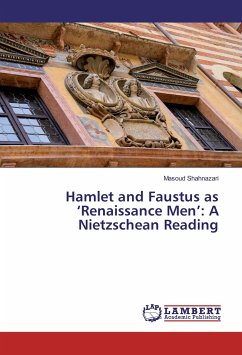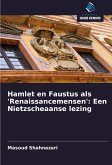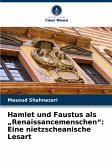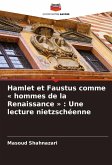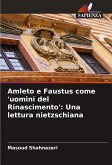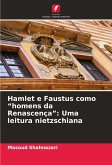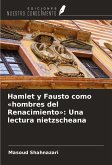British literature during the 16th century Renaissance went under the influence of masterpieces of great men who injected a generous motif to the literary canon of that time. By establishing a peculiar research on the side of the heroes of the two plays of Hamlet and Doctor Faustus, we come to face with the emergence of novel characters who are in need of more precision. Friedrich Nietzsche's philosophical thoughts come in handy to apply a critical reading of the two plays in a comparative manner in order to shed light on the deep levels of the groundwork of these two plays. For doing so, fundamental concepts taken out of Nietzsche's theories are being observed each of which though might meet in a number of overlaps, represent the complicated concept of Renaissance Man. Finally, a moral implication is perceived on the literary basis of the two plays which relies on Nietzsche's enlightenments by expressing life's various ups and downs and by manifesting the outcomes of such jeopardies happened to the heroes which directly target the literary reader on how to supply the eternal pace of life as the mere meaning of humanity.
Bitte wählen Sie Ihr Anliegen aus.
Rechnungen
Retourenschein anfordern
Bestellstatus
Storno

